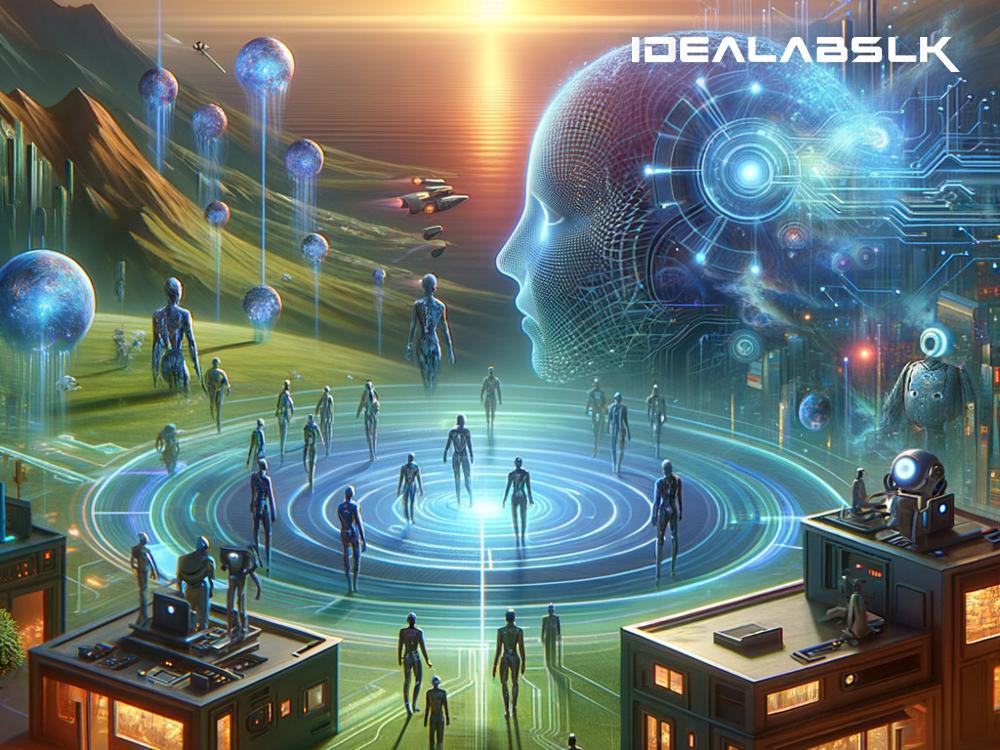How AI Will Create Smarter NPCs in 2025: Expect More Realistic Interactions
In the ever-evolving world of technology, Artificial Intelligence (AI) continues to make leaps and bounds, especially in the realm of video games. By 2025, we're set to witness a significant transformation in how non-player characters (NPCs) behave, thanks to the wonders of AI. This means more realistic and smarter interactions that promise to redefine our gaming experiences.
What are NPCs?
Before diving deep into the future, let's get the basics right. NPCs are characters in video games that are not controlled by players. They can be friends, foes, or simply bystanders in the virtual world. Traditionally, NPCs follow a set script or pattern, which can sometimes make them predictable and less engaging.
The Role of AI in Revolutionizing NPCs
AI is like the magic wand that is set to change the game (literally) for NPCs. By using complex algorithms and learning techniques, AI can enable NPCs to react in more human-like ways. This means they can have conversations, make decisions, and even learn from interactions with players, making each gaming experience unique.
The Shift Towards More Realistic Interactions
Imagine walking into a virtual shop where the NPC shopkeeper remembers you from your last visit and asks if you enjoyed the sword you purchased. Or picture an enemy that learns your fighting style and adapts its strategy to challenge you further. This level of interaction is what we can expect as AI integrates deeper into game development by 2025.
NPCs That Understand Context
One of the most exciting advancements will be NPCs that understand the context of interactions. This means they can recognize whether a player is being friendly, aggressive, or inquisitive and respond accordingly. This ability to interpret the tone and intent will make conversations with NPCs feel more natural and engaging.
Adaptive Learning for Personalized Experiences
With AI, NPCs can remember past interactions and learn from them, allowing for personalized gaming experiences. If you're someone who loves to explore every nook and cranny of the game world, NPCs might start giving you hints about hidden treasures or secret quests based on your behavior.
Emotional Intelligence
By 2025, expect NPCs to have a form of emotional intelligence. They'll be able to detect and react to the emotional state of the player through in-game actions or even voice tone, if technology allows. This will enable NPCs to show empathy, fear, excitement, or anger, deepening the emotional impact of the game.
Challenges and Considerations
While the future seems exciting, there are challenges to consider. Developing AI-driven NPCs requires significant resources, time, and expertise. There's also the ethical consideration of creating NPCs that are too realistic, which could blur the lines between virtual and reality for some players.
Additionally, ensuring that NPCs enhance the gaming experience without taking away from the player's sense of accomplishment will be a delicate balance to achieve.
The Impact on Game Design
As NPCs become smarter, game design will inevitably evolve. Quests and storylines can become more dynamic, with multiple branching paths that reflect the complex interactions players have with NPCs. This means no two playthroughs would be exactly the same, exponentially increasing the replay value of games.
Final Thoughts
By 2025, gaming is set to undergo a major transformation, all thanks to AI. Smarter NPCs will not only make our virtual adventures more engaging but also push the boundaries of what games can be. As we look forward to this future, it's clear that the line between virtual and reality will continue to blur, creating immersive experiences that were once merely the stuff of science fiction. With AI-driven NPCs, the possibilities are truly endless, promising a new era of gaming that is more realistic, interactive, and captivating than ever before.

